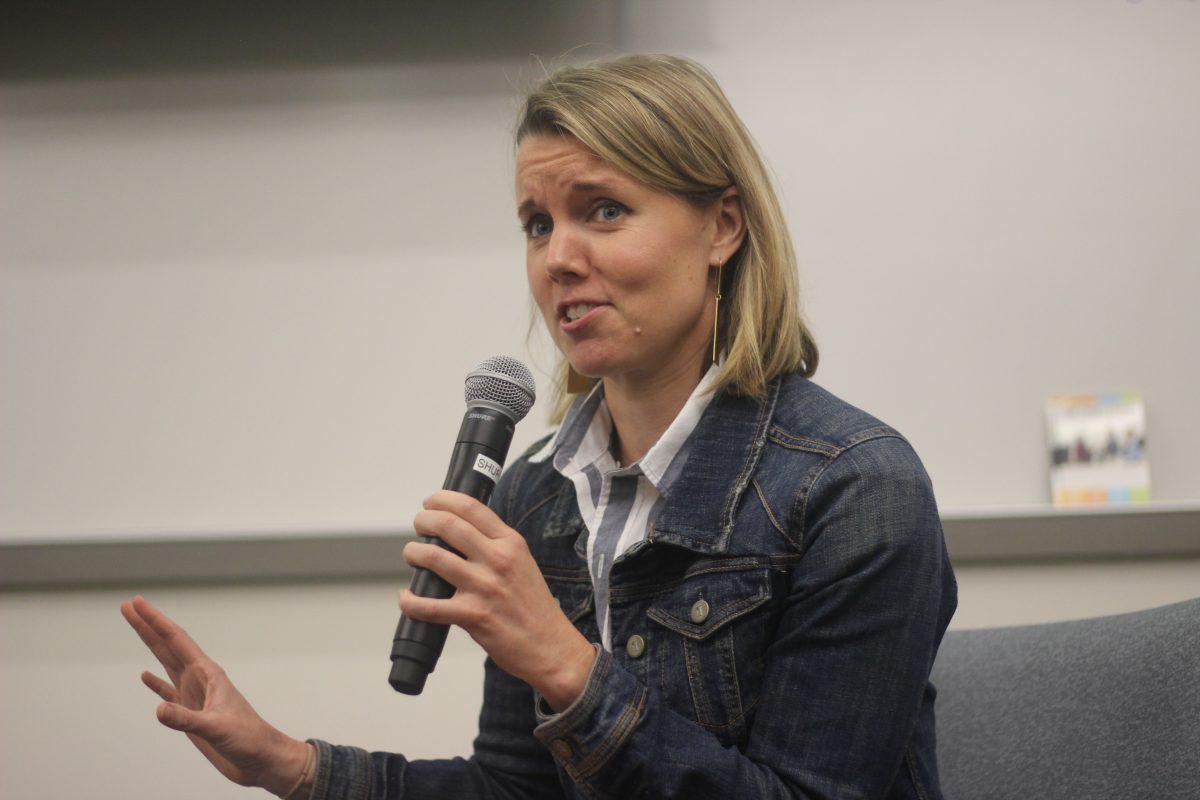The Galerstein Gender Center hosted Buzzfeed journalist and author Anne Helen Petersen to speak at a brunch and afternoon lecture on her book “Too Fat, Too Slutty, Too Loud: The Rise and Reign of the Unruly Woman” on March 27. The Gender Center hosted a book club this year centered around her work, which is an analysis of female celebrities. The Mercury sat down with Anne Helen to talk about her time at UTD and career path.
Can you tell me about your journey to Buzzfeed?
I’m a shy person, and it might not seem like it, but I’m a big introvert. It was never a natural inclination to be a reporter who would go and ask people questions. Then, when I was getting my Ph.D., I started writing a blog online. I’ve always loved to write, when I was a little girl, when I was in high school and in college. I was writing about celebrities and celebrity analysis, which led to being paid very small amounts of money to write for different sites, then that led to Buzzfeed. I wrote a freelance piece for them called “Jennifer Lawrence and the History of Cool Girls,” and it went viral. This was in the early stages of Buzzfeed, where it was like, “Throw stuff at the wall and see what sticks.” So I gave my last final as a professor, flew to New York the next day, and have spent the last four years with them.
What was the most interesting question you received today?
There was a woman who mentioned Jane Fonda and asked if that generation of unruly women would be swallowed up and forgotten. Because I’m a historian and I know all these historical figures, sometimes I take it for granted that other generations don’t know about Roseanne or Jane Fonda. So in answer to that question, I was able to talk about my reasoning for not including Jane Fonda, but then also the answer to the question led to the importance of us not forgetting what happened in the backlash of the ’90s and and historical amnesia that sometimes occurs. I liked that question a lot.
What’s your favorite story you’ve written?
One of my favorites is a story I did on the Dallas refugee community. I had preconceived notions of what Dallas was like, and some of those were from living in Austin and hearing people talk crap about Dallas, and part of those were just how the nation imagines Dallas. I had heard that there was a large refugee community here and a ton of groups and organizations, specifically Christian ones, working with these refugees. This one woman, Samira Page, has an organization called Gateway of Grace. She came to the United States in the’90s, and the people who brought her over left her in Mexico City. She had to cross the desert with her two young sons. When she got here, she started going to a Christian church, converted, went to SMU, got her doctorate and is now an Episcopalian minister. Her primary ministry is a group where she pairs new refugee families with several families from a church. A lot of times, these people are conservative, they might have never met a Muslim, and by making refugees people to them, it helps with Islamophobia. It humanizes refugees. Not only did that really retexture the way I thought about Dallas, this also an important story. I want the stories I write to add nuance to the way we think about things.
How was your day at UTD?
It’s been great. I’ve been to a lot of campuses, and I don’t mean this as awkward PR for the (Galerstein) Gender Center, but they thought holistically about making this into something valuable. Oftentimes, a speaker will come to a campus and a class will have read maybe one chapter of one book, so there’s not that engagement. I met one-on-one with students who are very involved with the Gender Center first, and then we went to the brunch for a more open lecture. I was able to build and talk about cascading issues, and also get a real sense of the students and faculty here who seem to be really thoughtful and diverse. Because it’s a more engineering and science-minded school, it has different feel than most of the schools I visit, which are very humanities-style school. The group that I met with this morning was all psychology or neuroscience or engineering, not what you think of when you think of gender-study students.
How did the Gender Center first connect with you?
They heard the Sam Sanders NPR podcast. He’s really great; when a book comes out, your publicist arranges a whole host of interviews. (The Galerstein Gender Center) emailed me almost a year ago to do a book club with students where they would read one chapter each month, and then you have a whole group of people who have read the book when they come to the talk.







